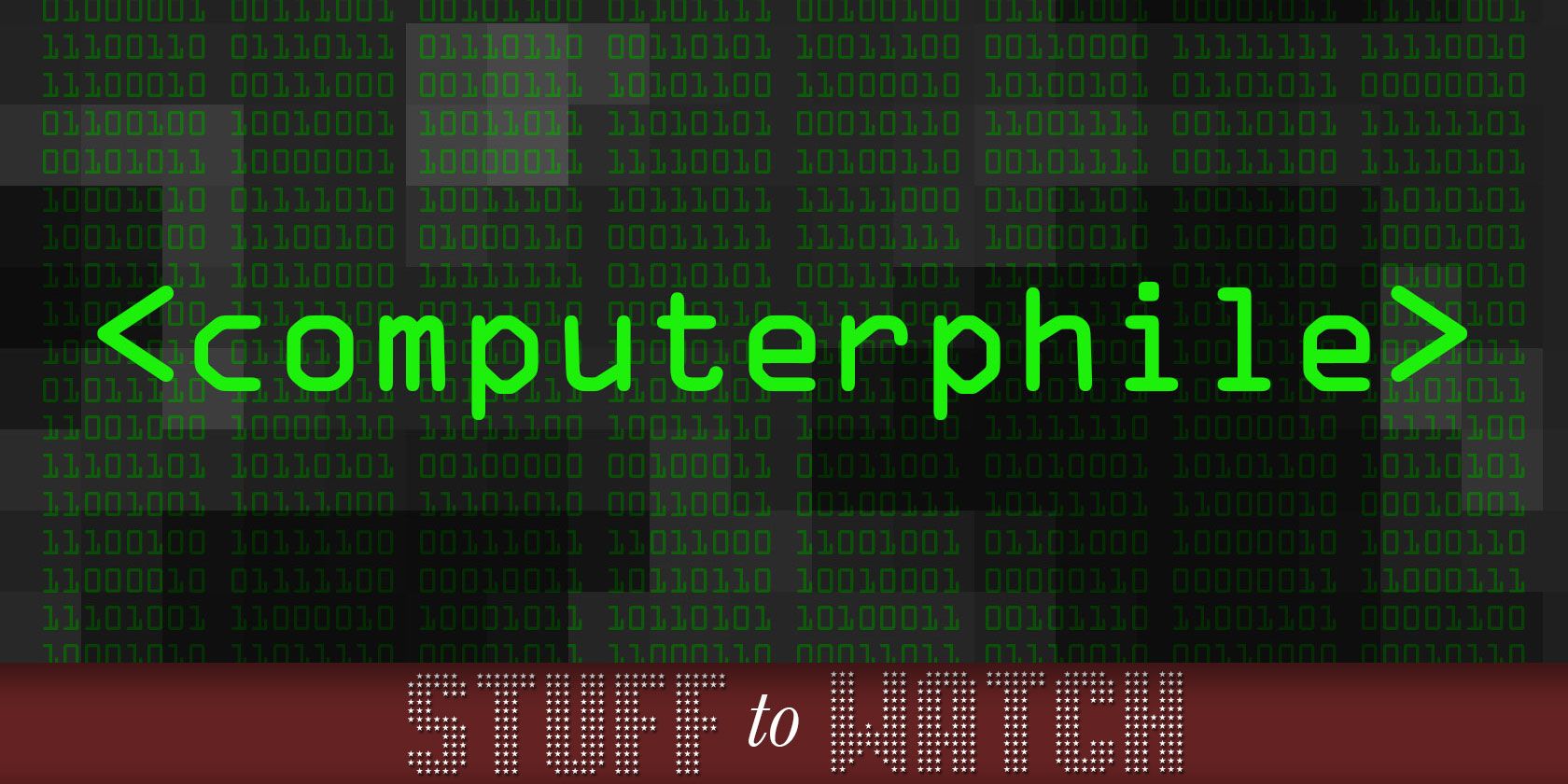If classic technology-themed television from the pre-Internet ages is something you remember fondly, you might want to give Computerphile a watch. Presented by a variety of experts, each episode aims to explain and recount the history of some of our best everyday technology.
Topics range from the miracle of text encoding to uncovering the mysteries behind YouTube itself. The mid-length video format is long enough to retain the details, which makes Computerphile more like TV classics like The Computer Chronicles and Tomorrow's World than a YouTube channel run by geeks.
Characters, Symbols & The Unicode Miracle
http://www.youtube.com/watch?v=MijmeoH9LT4
This was the very first episode of Computerphile that I came across, and despite being rushed off my feet on a Friday morning, I sat and watched the whole thing. For Internet attention spans, I thought my 9 minutes 37 was pretty damn good.
It could be because the explanations are detailed and engaging, which just makes you want to keep watching. It could be the subject matter – the tale of a mess of competing technologies "working it out" – which is something we rely on every day.
The Great 202 Jailbreak
http://www.youtube.com/watch?v=CVxeuwlvf8w
In 1979 a team at Bell Labs reversed engineered a typesetter. This was a time before affordable laser printing, when typsetters were a highly sophisticated bit of kit that used all manner of chemicals, fixers and bromide paper. The closest office or home printing technology at the time, was dot-matrix, which provided poor (and noisy) results.
Watch Professor Timothy Brailsford, head of Computer Science at the University of Nottingham recount the story of one of the most interesting summer projects ever undertaken.
How Not To Store Passwords
http://www.youtube.com/watch?v=8ZtInClXe1Q
We've all heard of companies being hacked, accounts being comprimised and passwords being released – but why does this happen? The truth is it's very, very easy for people storing sensitive data to get it very wrong indeed. It shouldn't happen this way, but it does.
This video explains why so many problems occur when people who don't know an awful lot about security end up assuming their security is good enough, and it's very interesting. We've got our own guide all about passwords, as well as storing them.
Virtual Machines Power the Cloud
http://www.youtube.com/watch?v=GIdVRB5yNsk
"Cloud computing" is a term that's commonly paraded around and mis-used with reckless abandon, but the term does have a legitimate use. The technology is big business, and virtualization is instrumental in the scaling models that cloud computing relies on.
Derek McAuley, Professor of Digital Economy at the University of Nottingham's Computer Science department recounts the birth of virtualization, explains how the technology roughly works and how it all ties together with the advent of cloud computing.
What If The Universe Is A Computer Simulation?
http://www.youtube.com/watch?v=YOxDb_BbXzU
Have you ever wondered "what if this was all put here just for me?" and if so, have you ever taken the concept to the next stage? The idea that the universe is a computer simulation is an interesting one, but how would we be able to tell if it were true?
The field of "digital physics" is a subject all in itself now, and the theory that space time might be quantized is a very interesting one. Watch till the end for one Oxford professor's rather bold theory.
BBC B Microcomputer
http://www.youtube.com/watch?v=do6xydtcVPk
The first computer I ever used was a BBC Micro, and that's because the BBC micro was one of the first home computers. In the UK, these things made it into nearly every school in the country, with a mighty 2 megahertz CPU and 32K of RAM.
Thanks to the BBC Micro, many of the world's most important programmers were introduced to the idea of computer programming on an affordable machine that a hobbyist could use with an existing television. This film takes a good look at this majestic off-white machine of yore, as well as some basic programming techniques.
The Rest
There are in excess of 60 episodes of Computerpile, with students and professors both explaining and recounting the history behind some of today's most important advancements. Subscribe using the link below and don't forget to check out sister channel, Numberphile.
Watch: Computerphile on YouTube
Did you enjoy these videos? Let us know what you'd like to see more of in the comments, below.

